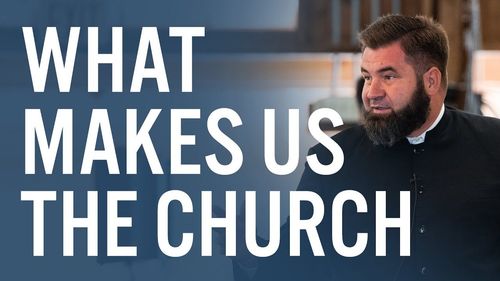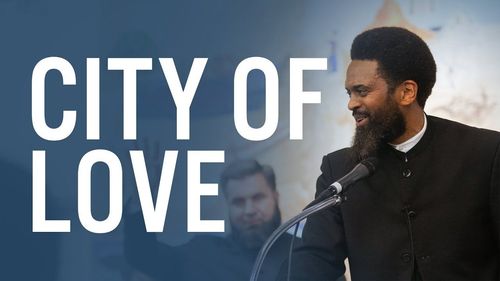_ “If any man come to me, and hate not his father, and mother, and wife, and children, and brethren, and sisters, yea, and his own life also, he cannot be my disciple.” Luke 14:26_
Consecration. This word conjures up thoughts of dedication, sacrifice, and resolve. But as with many spiritual principles, the true, deep meaning has been lost in the business and confusion of this increasingly wicked world. What does it mean to be “sold out” for the gospel?
Is this merely an intellectual exercise in which we attempt to hypothesize what the Lord may require of us? Or are there practical, physical applications of this often professed, but much less commonly possessed, quality?
When one studies the history of the devout people of God, from Creation to today, there is a theme that consistently presents itself. True saints have always possessed the realization that nothing belongs to them. In fact, even the very air necessary to sustain life is a direct gift from God. Therefore, it is only reasonable that everything should be used for the furtherance of the work of the Lord.
his is made evident by such historical figures as the children of Israel when they brought of their riches to Moses to build the tabernacle (Exodus 36), Hannah giving Samuel to Eli (1 Samuel 1), the widow woman that gave her last meal to Elijah (1 Kings 17), or the early Christians laying their things at the apostles’ feet (Acts 4). This concept would be met with little resistance from most professed Christians of today. However, the discrepancy would arise where the rubber meets the road, in the practical administration of the giving.
In all the examples used in the previous paragraph, and in many more examples in the scriptures besides, there is one glaring commonality. Every time there was a great move of God, the required resources were given by the people, and given to someone. Not simply held in reserve “in case God needs it,” not even used as the giver saw fit. The offerings were laid at the feet of God’s chosen men.
Moses decided how to best use the Israelites’ donations. Imagine if the men of Israel had attempted to earmark their gifts for certain uses. “Now, Moses, I would like these earrings to be melted down and used to overlay the ark of the covenant. And since I donated so much, could you maybe make sure everyone knows that I paid for the mercy seat where God sits?”
We find this thought laughable, and yet this is precisely how church-goers today behave themselves. Rather than tithes and offerings being given as free gifts to be used as God directs, they are used as leverage to direct the work of God as the giver feels it should go.
The issue of where to give is not the only one where a struggle is to be had. What should we give, and how much? Firstly, we must remember that the size of the gift is not what matters. Our heavenly Father already owns the cattle on a thousand hills. He has no need of your support. He is omnipotent! The giving of our resources is not even a repayment of any kind, because the gift we give God was his already. It is like a small child asking his father for money to buy him a gift. The father receives the present that already belongs to him, and is made happy, not because he was made richer by the gift, but because he knows that child made a sacrifice for him.
We should give until it hurts. Giving out of an abundance, while keeping plenty in reserve, is no sacrifice. We are reminded of the Pharisees making a great show of giving large amounts of money in the temple, while the poor widow woman gave her last two mites. The widow’s offering made no noticeable difference in the work of the Lord. It likely was not enough to fill one lamp with oil.
And yet, Jesus praised her offering and told His disciples that she gave more than all the others. She gave until it hurt. She was prepared to starve to death as long as she did her part for God. May our faces burn in shame as we carefully consider our budgets, making sure that our needs and wants are all provided for, and then giving the little remainder to the offering box, providing that there even is any left.
Consider the rich young ruler that came to Jesus, inquiring how to obtain eternal life. Jesus began with a list of things that he knew the young man was measured up in.
_ “Do not commit adultery, Do not kill, Do not steal, Do not bear false witness, Honour thy father and thy mother. And he said, All these have I kept from my youth up. Now when Jesus heard these things, he said unto him, Yet lackest thou one thing: sell all that thou hast, and distribute unto the poor, and thou shalt have treasure in heaven: and come, follow me. And when he heard this, he was very sorrowful: for he was very rich”. Luke 18:20b – 23_
Just like this man, many times we start by giving the things that are easier for us. We justify our lack of giving in some area by attempting to compensate in another. Doubtless this ruler felt he was a good man. He had likely had opportunity to commit adultery, to steal, to kill, to dishonor his parents. And he had “sacrificed” these things for God. But the Lord kept prodding until he hit upon the one thing that this man loved, and the young man is in eternal torment today for his unwillingness to give to God what was already rightfully His.
Oh, reader, ask yourself, what is your “one thing”? Do not think of all the things you are giving, but think instead on what you are holding back. It may be that God is asking you to preach or sing or He may require you to fill some more unnoticed and seemingly menial place in the body. Perhaps you, too, need to sell all that you have and give to the poor. But do not give it to a place of your choosing. Instead, lay it at the feet of the men of God and allow them to distribute it as they see fit. Maybe you need to give of your time, rising earlier in the day or staying up late and sacrificing your beloved sleep to help someone in need. Whatever your one thing may be, give it up and follow the voice of our dear Saviour as He says, “come, follow me.”
_ “The world has yet to see what God can do with a man fully consecrated to him. By God’s help, I aim to be that man.” D.L. Moody_


